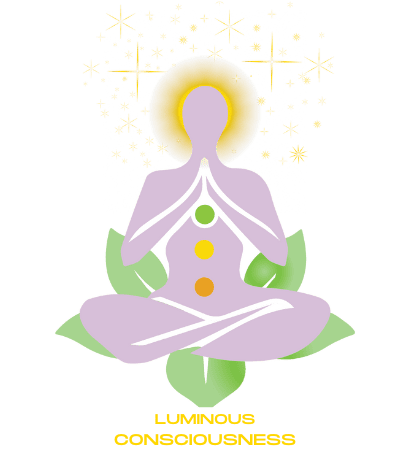Spiritual growth can be a personal journey full of insight and transformation, yet some people find themselves resisting it. This resistance doesn’t mean a lack of interest or unwillingness to engage with life’s deeper meanings. Often, it reflects internal conflicts, fears, and comfort zones that are hard to break. In this article, I explore why some people resist spiritual growth and offer practical advice to help overcome these obstacles.

Exploring the Roots of Spiritual Resistance
Many people feel a pull towards spiritual growth, but then something seems to hold them back. This resistance may come unexpectedly, leaving them confused or frustrated. At times, it shows up as an inner voice cautioning against change or a reluctance to leave behind familiar ways of thinking. In my experience as a life coach, these moments can be turning points if they’re understood and properly addressed.
Often, the roots of spiritual resistance lie in deep-seated fears. The idea of changing a long-held belief system, or stepping away from what feels comfortable, can trigger anxiety. It is not uncommon to feel that by opening up to new perspectives, one might confront painful truths about themselves or questions they’re not ready to answer.
The Role of Fear and Comfort Zones
Fear plays a major role in holding many back from exploring spiritual growth. One reason is the fear of the unknown. Spiritual growth often leads to redefining one’s identity, values, and relationships, and that process can feel intimidating. For some, the idea of change represents a loss. A loss of security or of a well-known way of life can make the prospect of growth very intimidating.
In addition to the fear of change, many people also cling to their comfort zones. Familiar beliefs, even if they feel limiting, provide a sense of stability. The predictability of everyday routines can be seen as a safe haven. As a result, the idea of stepping into unexplored territory can provoke resistance, even if growth lies just beyond the threshold.
- Fear of the Unknown: The switch from known beliefs to uncharted spiritual ideas can create uncertainty and unease.
- Comfort in Routine: Sticking to familiar patterns and long-held beliefs offers a perceived sense of security.
- Potential for Painful Realizations: Spiritual growth might unearth unresolved emotional wounds or past traumas, causing individuals to hesitate.
Common Obstacles in Spiritual Development
There are several obstacles that can block or slow spiritual development. Understanding these barriers is the first step in overcoming them. As a life coach, I encourage my clients to view these challenges as opportunities for deeper self-exploration and healing.
One major obstacle is the impact of past experiences. Negative encounters or traumas may make spiritual exploration feel risky. If someone associates spirituality with painful memories or disillusionment, they may resist advancing further. Similarly, societal messages and cultural norms sometimes undermine personal spiritual quests by promoting material success or external achievements as the main paths to happiness.
For many, the influence of family, friends, or cultural environments can be significant. If the community one grows up in dismisses spiritual inquiry, it can create a mental block against seeking more profound experiences. Additionally, misconceptions about what spirituality entails—such as the belief that it promises instant enlightenment or a hassle-free life—can lead to disillusionment when real growth inevitably requires effort and reflection.
- Past Negative Experiences: Trauma or painful memories linked with spiritual practices can lead to an automatic rejection of new experiences.
- Cultural and Social Conditioning: Societal norms that prioritize success and materialism can discourage introspection and inner growth.
- Misconceptions about Spirituality: Unrealistic expectations of rapid transformation can result in frustration when progress is slow and challenging.
- Emotional Vulnerability: Getting involved in deep inner work often requires confronting uncomfortable emotions, which can be overwhelming.
Facing the Inner Critic and Self-Doubt
The inner critic can be a strong force in resisting spiritual growth. It often manifests as self-doubt or negative self-talk, whispering that change is too risky or that one is not deserving of a deeper existence. This internal dialogue can feel like a safety net, keeping individuals from venturing into new emotional and intellectual territories.
The inner critic usually stems from early experiences and conditioning. It might remind you of your past mistakes or feed into insecurities about your ability to grow spiritually. The persistent voice of self-doubt can convince a person that the comfort of ignorance is preferable to the challenge of transformation.
Getting involved with the inner critic doesn’t mean silencing it immediately, but rather understanding its origins. Bringing awareness to these critical thoughts can lessen their control over your mind, opening up possibilities for growth and self-compassion.
Practical Steps to Overcome Spiritual Resistance
Overcoming spiritual resistance is like retraining the mind to embrace change. While the process may seem daunting, there are practical steps you can take to break down barriers and move toward a more fulfilling inner journey. The following tips come from my years of experience working with individuals who once felt trapped by their own fears and doubts.
- Practice Self-Reflection: Dedicate regular time to reflect on your thoughts and feelings. Journaling can help you identify recurring patterns of resistance and understand their root causes.
- Create Space for Mindfulness: Incorporate mindfulness practices such as meditation, deep breathing, or quiet contemplation into your daily routine. These practices allow you to observe your inner dialogue without judgment.
- Embrace Vulnerability: Open yourself to the possibility of change by accepting that vulnerability is a part of growth. Recognizing that vulnerability can lead to strength is a powerful step toward transformation.
- Seek Guidance: Sometimes, talking to a professional coach or therapist can provide clarity. Guidance from someone who understands your journey can help you find your way through internal obstacles.
- Gradual Experimentation: Instead of pushing yourself into a completely new routine overnight, take small steps. Try one new practice at a time to ease into the process of spiritual growth.
Embracing these steps may not erase all the challenges at once, but they can help solidify a path toward gradual and sustainable personal evolution.
Jump into: The Impact of Past Wounds
Past emotional wounds can have a lasting impact on one’s readiness to engage with spiritual practices. When old hurts resurface during periods of introspection, it often feels like a setback rather than a step forward. This reaction is normal and part of the healing process.
Addressing these wounds might require facing painful memories head-on. In many cases, working with a trusted coach or therapist offers a safe space to process these experiences. The journey towards healing typically involves forgiving oneself, releasing guilt, and acknowledging the lessons learned from past difficulties. With time, these wounds can transform into sources of wisdom rather than anchors pulling you back.
Jump into: Social and Cultural Influences
Social and cultural backgrounds play a significant role in spiritual growth. From an early age, we are exposed to beliefs, values, and expectations that shape our worldview. Sometimes, these influences promote stability but can also impose limitations that conflict with personal spiritual exploration.
For instance, if you come from an environment where spirituality is misunderstood or even discouraged, you might find yourself doubting its value. This lingering influence can create a subconscious barrier, making it challenging to fully embrace new ideas or practices. Overcoming this resistance requires critical questioning of long-held beliefs and a willingness to redefine what spirituality means on a personal level.
It’s important to strike a balance between honoring your cultural roots and exploring a more expansive view of spiritual life. Understanding that personal growth often involves reevaluating inherited beliefs can be liberating. In this process, reflecting on what truly resonates with you helps build a more authentic and resilient spirituality.
Frequently Asked Questions
Here are some common questions that arise when dealing with resistance to spiritual growth:
Question: Why do I feel an internal pushback every time I try new spiritual practices?
Answer: It might be that deep-seated fears or old wounds are coming to the surface. This reaction is a natural part of exploring new paths. Taking small, mindful steps can help ease this resistance while allowing you to navigate past these hurdles at your own pace.
Question: How can I distinguish between healthy caution and resistance that holds me back?
Answer: Healthy caution usually comes with a balanced awareness of both risks and benefits. If you find that your inner dialogue is predominantly negative and prevents you from making even small changes, it could be a sign of unwarranted resistance. Reflect on your feelings and consider seeking guidance to better understand these reactions.
Question: Are there specific practices that can help in reducing spiritual resistance?
Answer: Incorporating mindfulness and self-reflection into your daily routine can be very helpful. Practices like meditation, journaling, and even talking through your feelings with a trusted friend or coach can create a space for gradual change and insight.
Question: Can I overcome my spiritual resistance on my own, or should I seek professional guidance?
Answer: While self-exploration is valuable, sometimes professional guidance can provide clarity and support, especially if your resistance is tied to deep-seated fears or past trauma. Coaching or therapy offers a safe environment for learning and growth.
Final Thoughts
The journey towards spiritual growth is rarely linear, and resistance can be both a warning and a guide. It tells you where fear resides and where comfort zones are holding you back. Recognizing these barriers is a critical step toward transforming them. By understanding the roots of your resistance and embracing practices that encourage reflection and gradual change, you can make meaningful strides in your spiritual journey.
Remember that resistance does not mean you are flawed or incapable of growth. It is a natural signal that you are encountering areas in your inner world that need attention. With patience, self-compassion, and the right strategies, you can move past these obstacles. Each small step taken with awareness is a victory in the ongoing journey toward a richer, more fulfilling spiritual life.
Embracing change, however gradual, opens up new avenues for experiencing life’s deeper dimensions. Whether you decide to start small with daily reflection or seek the support of a coach, every effort to understand and overcome spiritual resistance can lead to profound personal transformation. Keep exploring, and allow yourself the time and space to grow at your own pace.
Additional Reflections on Spiritual Resilience
Spiritual growth is an ongoing adventure that requires continuous effort and self-awareness. As you work on overcoming obstacles, it is very important to remain open to change and willing to experiment with new practices that resonate with your inner self. Sometimes, the process of healing and growth feels slow, and you might face moments of doubt or discouragement. These moments are natural and can even be seen as opportunities to learn more about your fears and how to overcome them. Taking time to sit quietly, reflect on past experiences, and acknowledge even the smallest progress can give a boost to your journey of inner transformation.
In addition, consider the ways in which your daily environment influences your spiritual resilience. Reflect on how social interactions and cultural expectations contribute to your mindset. By consciously choosing to surround yourself with supportive influences and nurturing practices that lift your spirit, you set the stage for continued personal glow-up. Small habits, such as a daily gratitude exercise or regular self-check-ins, can add up significantly over time. Remember, every little step, every thoughtful moment contributes to a larger tapestry of growth and renewal. Allow yourself to evolve at your own pace and take pride in each accomplishment, no matter how minor it may seem. This extra layer of reflection can help solidify your commitment to a healthier, more balanced inner life.
